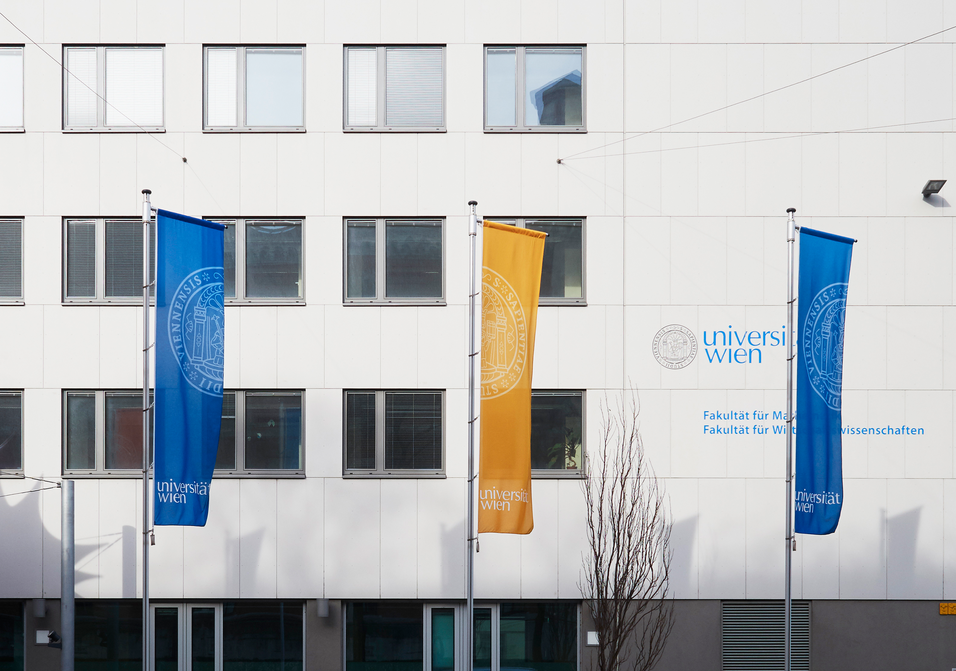The OMDS/VGSE Vienna Joint Economics seminar is held weekly on Thursdays during the term.
VJE-Seminars scheduled in March:
- Speaker: Jörg Oechssler (U Heidelberg)
- Title: On the Benefits of Robo-Advice in Financial Markets (joint with Marco Lambrecht and Simon Weidenholzer)
- Time: Thursday, March 7, 1:15 – 2:45 pm
- Location: Lecture Hall 12, OMP-1
- Abstract: Robo-advisors are novel tools in financial markets that provide investors with low-cost financial advice, usually based on individual characteristics like risk attitudes. We study the benefits of robo-advice in a portfolio choice experiment running over ten weeks. Depending on treatment, investors either receive robo-advice, have a robo-advisor implementing recommendations by default, or have to invest on their own. While we observe no effect of robo-advice on initial market participation, we do find positive effects on continued market participation. Robos also help investors avoid mistakes, make rebalancing more frequent, and overall yield portfolios much closer to the utility maximizing ones. Robo-advisors that implement the recommendations by default do significantly better than those that just give advice.
- Speaker: Dominic Rohner (HEC Lausanne)
- Title: Donor Attention and Political Violence (joint with Siwan Anderson, Patrick Francois, and Rogerio Santarrosa)
- Time: Thursday, March 14, 1:15 – 2:45 pm
- Location: Lecture Hall 12, OMP-1
- Abstract: Political violence within countries has been on the rise for the last few decades. This paper examines a potential international dimension to this domestic repression and dissent. We focus on possible impacts from international attention on the behavior of governments and opposition groups. We consider that governments who depend heavily on foreign aid could be more likely to attack political opponents when international donors are distracted by their own major domestic events. In anticipation of this, opposition groups have incentives to reduce agitations that incite such crackdowns. We study this interaction in a simple strategic model, and scrutinize the predictions of this model using fine-grained data for Africa. The theory surmises that oppositions will reduce agitations when shocks are anticipated (elections). In contrast, when unanticipated shocks (natural disasters) hit, and when agitations are already under way, the theory predicts that the opposition will substitute visible forms of unrest (riots) for more covert operations on soft targets (targeted violence against civilians). This pattern is precisely reflected in the data. International donor in attention hurts political oppositions through the out-of-equilibrium threat of increased repression, and observed political crackdowns may only represent the "tip of the iceberg". Enhancing international scrutiny would help safeguard public demonstrations of dissent, and reduce violence against civilians.
- Speaker: Benjamin Born (Frankfurt School of Finance & Management)
- Title: Firm Expectations and News: Micro v Macro
- Time: Thursday, March 21, 1:15 – 2:45 pm
- Location: Lecture Hall 12, OMP-1
- Abstract: Firm expectations reflect micro and macro news: information about firm-level developments and the aggregate economy. We formalize this notion in a stylized general-equilibrium model where firms face a signal-extraction problem and study the implications of ‘island illusion,’ meaning that firms systematically underestimate the importance of aggregate developments for their own performance. Island illusion is governed by a single parameter that captures the departure from rational expectations. It imposes joint restrictions on the impact of micro and macro news that we confront with survey data for Italian and German firms. While both surveys differ along many dimensions, we find robustly that firms’ expectations about their own prices and output overreact to micro news and underreact to macro news—just like the model predicts for island illusion. Moreover, also consistent with the model, we find the extent of overreaction.

